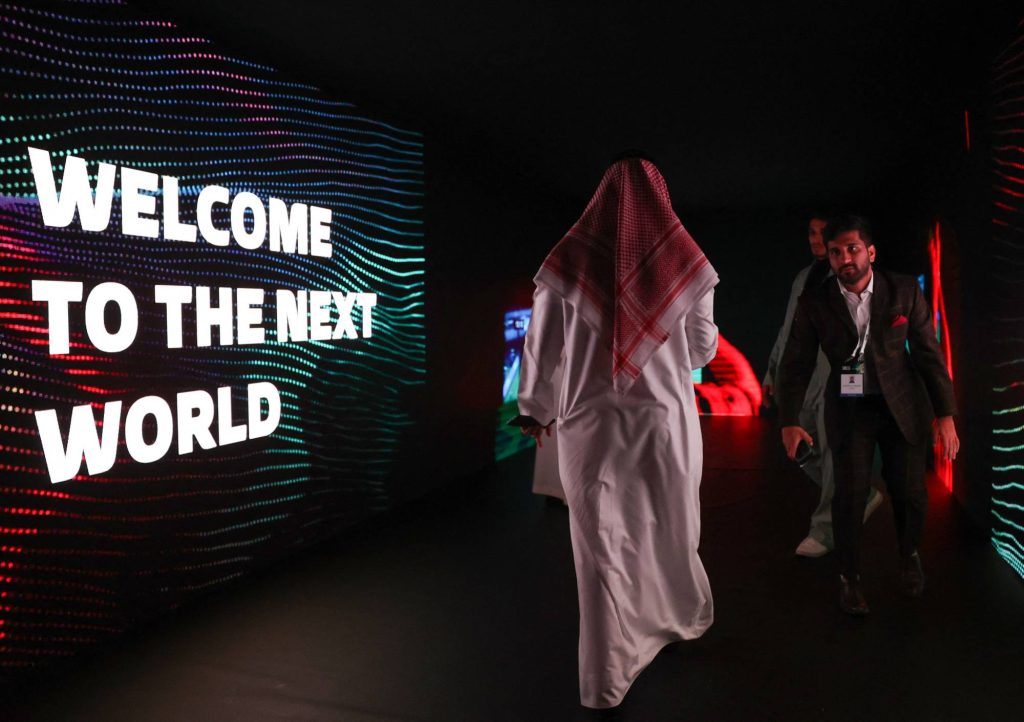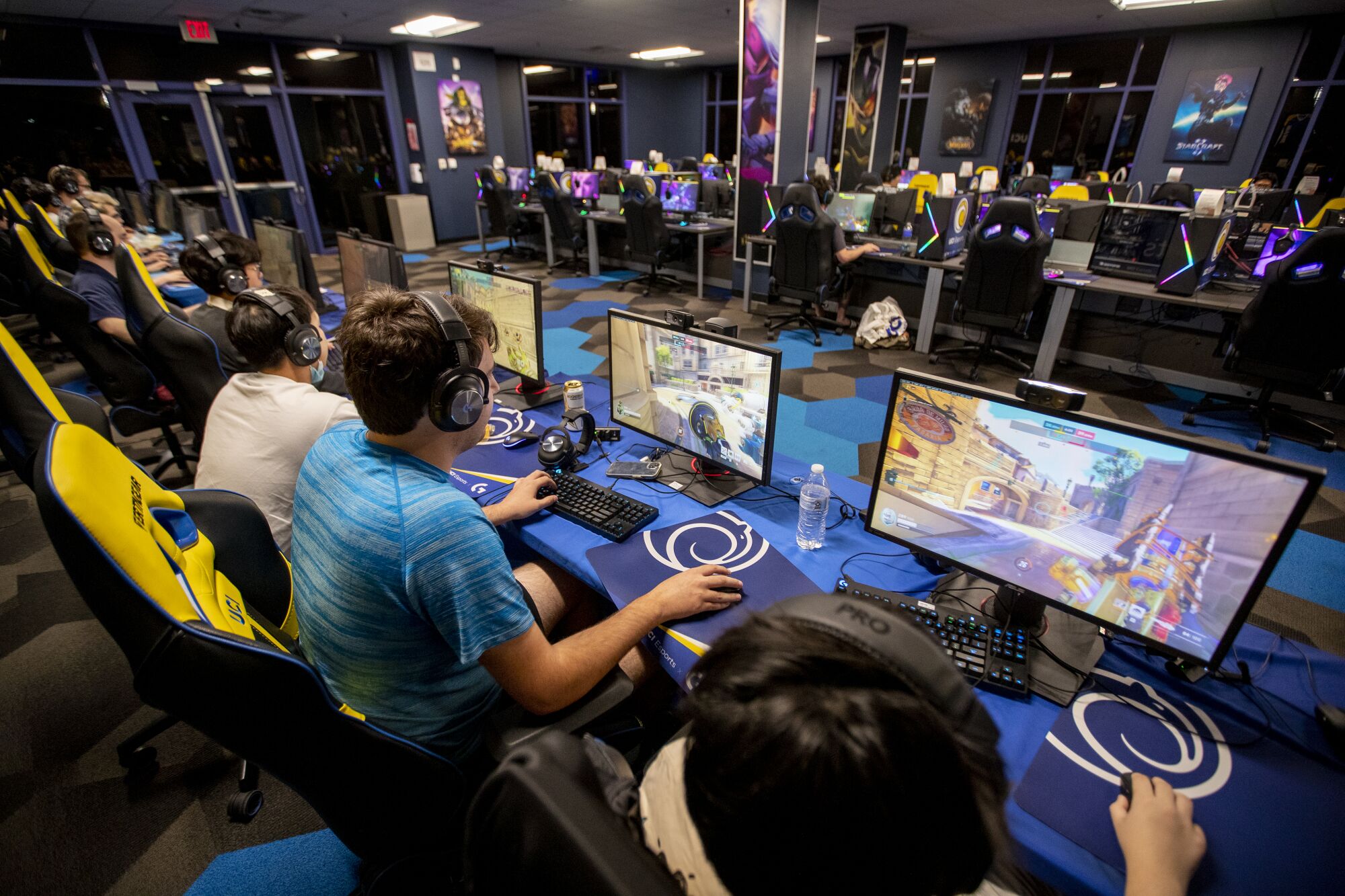
You might call it the summer that Saudi Arabia devoured sports. On June 6th, it was announced that the Saudi-backed LIV Golf was combining with the Professional Golfers’ Association, which was supported to the tune of over a billion dollars by the Saudi Public Investment Fund (PIF). In football, the world’s most popular and lucrative sport, the kingdom has invited worldwide superstars such as Karim Benzema, Neymar, and Jordan Henderson to the desert to play their trade, enduring not only the region’s searing heat but also fierce allegations of sportswashing. For traditional institutions, it was a summer of humiliating disruption in which they may have silently recognised, though they would never confess it, the advent of a new world order.
The spending spree isn’t limited to sports. Saudi Arabia has recently engaged in the film industry, founding the Red Sea International Film Festival. In what appears to be the last boss of late-stage capitalism, the country sponsors pay-per-view WWE events. Then there are video games, a $187 billion worldwide sector into which the monarchy is attempting to make its way, although maybe not with the same brazenness that it has displayed towards sports.
The Gaming Pie
Nintendo, Take-Two, Electronic Arts, and Activision Blizzard have all made minority stakes. These are key portions of some of the industry’s most profitable pies. The monarchy has bought smartphone developer Scopely for $4.9 billion and esports organisations ESL and Faceit for $1.5 billion through the PIF-funded Savvy Games Group (which declined to be interviewed for this story). Additional $13 billion has been set aside “for the acquisition and development of a leading game publisher,” with many more billions set aside for subsequent minority investments. So, oil money is flowing through the video gaming business almost as fast as Saudi Arabia can pump it out of the ground.
Where is it all going?
According to Savvy CEO Brian Ward, a former executive at EA and Activision, the country aims to become a gaming “powerhouse,” transforming the kingdom into a hub of development and esports and, in the process, possibly making Crown Prince Mohammed bin Salman the most powerful, avowed “gamer” in the entire world. Ward has stated that this investment is part of the Saudi plan for “economic diversification and social transformation,” a massive effort to maintain the kingdom’s economic relevance in a world rapidly transitioning away from fossil fuels while strengthening its political position at home through the oldest play in the book: bread and circuses.
Above all, Mohammed bin Salman appears to be determined to put his country’s limitless oil wealth to good use — and the strategy appears to be succeeding.

Such massive investment is hardly exceptional in this era of mergers and acquisitions, but “the appetite with which Savvy and PIF has sucked their teeth into this is unprecedented,” according to Joost van Dreunen, a New York University professor who published a book about the business of video games. He claims that for most of video games’ history, it was neglected by the larger corporate world — that is, until digital distribution blasted access to games wide open. This has resulted in the current strange situation: a nation state with a horrible human rights record, and which executes anyone who tweet critical of it, pushing its way into what remains a nerdish, escapist pastime.
Van Dreunen compares the contradiction to “real estate companies in China that all of a sudden got all of these film ambitions.”
“the appetite with which Savvy and PIF has sucked their teeth into this is unprecedented”
What the motif behind it all?
The volume of investment may be unusual, but the real strategy is not: neither the goal of transforming the kingdom into a video gaming hub nor the acquisition of a prominent publisher. van Dreunen cites the way South Korea invested extensively in internet infrastructure in the late 1990s, which led to it being a new centre point for video games in Asia and the home of many esports stars, “like the Alps for the Tour de France,” he adds. Meanwhile, China has emerged as a pivot of overseas development, notably in the manufacturing of complex 3D assets for blockbuster titles such as Horizon Zero Dawn.
“The ability to plug into the global economy, which required some investment from the government and some momentum from the market, has led to the emergence of these new hubs that didn’t previously exist,” said van Dreunen.
If the acquisition of big football teams by petro-states is any indication, Saudi Arabia should have no trouble acquiring a major publisher. Esports is, if not a more difficult subject, then a riskier gamble — a business that Wired recently described as “facing an economic downturn and a dampening of hype,” particularly in the United States. Viewing statistics are falling, and lofty expectations established by people such as Steve Bornstein, former CEO of the NFL Network before becoming Blizzard’s esports chair, have not been reached.

According to Mikhail Klimentov, a Washington Post foreign desk writer (and previous editor at the paper’s Launcher gaming department) who now writes the esports weekly ReaderGrev, “the broader problem is that a lot of esports leagues and teams are not monetizable in a very substantial way… When you start constructing a larger infrastructure and paying people, you lose money rapidly.”
For this reason, the idea that the esports bubble is about to burst, Klimentov described Saudi Arabia’s entry into the arena as “impeccable timing.” They’ll take those guarantees.”
Evolution but of what kind?
Saudi Arabia is evolving, but not necessarily in a more liberal manner. For every social reform, there comes a crackdown on dissent, and others say that social reforms are restricted to big cities like as Riyadh. The country is in flux, which is why Simon Chadwick, professor of sport and geopolitical economy at Skema Business School in Paris, believes that investment in video games and other businesses is basically an issue of “security.”
According to Chadwick, there are two fundamental parts to this security. The first is economic: Saudi Arabia is heavily reliant on oil and gas, which he claims accounts for “40 to 50 percent of Saudi Arabia’s GDP per year.” As it is, the kingdom is “incredibly exposed” and must “undergo a period of industrial diversification.” The second component is political. There are concerns that the kingdom’s large young population — 70 percent of Saudis are under 35 — is vulnerable to both religious and political extremism. “Essentially, Mohammed bin Salman is negotiating a new social contract within Saudi Arabia,” Chadwick adds. “That social contract is: ‘We will cater for whatever demands that you have.
First steps towards this huge “game”
Video games also provide a possibility to retain and broker influence on a global scale, as Chadwick refers to as “network strategy.” In December 2022, China’s President Xi Jinping visited the Persian Gulf, stopping in Riyadh, Saudi Arabia, rather than Qatar, where the World Cup was presently being held. A few weeks later, the monarchy invested $265 million in Chinese esports business VSPO, its first venture into the country’s games sector and, according to Chadwick, an example of “esports as a form of diplomacy.”

Game fans meet football enthusiasts
Beyond the competitive crossover in the form of esports, what sports (particularly football) have in common with video games are dedicated, tribal fandoms. In an essay for RealLife, writer and novelist Vicky Osterweil refers to video game players as “goon squads” that “act as volunteer Pinkertons and scabs.” Football is comparable. Following Newcastle United’s acquisition by Saudi Arabia, fans were seen putting tea towels on their heads, not as a provocation or protest against their club’s new owners, but as a symbol of affection: they had become torchbearers for the Saudi rulers.
Whether or if targeting sectors with highly mobilised, vocal fandoms is a conscious strategy, such passionate activities will undoubtedly be music to the ears of the monarchy seeking to improve its global reputation. The same might be said of video games — call it gameswashing — as it is of football and golf.

It’s never just a business investment
There are usually strings connected whenever Saudi Arabia spends money nowadays. “It’s never just a business investment,” argues Ben Freeman, head of the Quincy Institute for Responsible Statecraft’s Democratising Foreign Policy programme. “I can’t picture gaming being any different… At the very least, they’re purchasing silence.” Freeman cites the non-disparagement agreement at the heart of the LIV Golf contract, as well as the self-censorship that always occurs with enterprises owned by such authorities. “If you’re a mid-level manager, or a programmer, you’re probably going to self-censor because you want to avoid an awkward conversation with your boss,” he explains.
Regardless of censorship, self or otherwise, the repercussions of Saudi Arabia’s financial might, or at least the prospect of it, are already being felt, not least by creators formerly employed by the video game company Embracer. In May, Embracer CEO Lars Wingefors claimed, under duress, that a $2 billion transaction with an undisclosed partner had fallen through. As a result, Embracer launched a “comprehensive restructuring programme” that included “studio closures and project termination.” According to subsequent reporting by Axios Gaming, it was Savvy Gaming Group that walked out of the agreement, despite Wingefors’ “really strong commitment.”
Because of this financing deficit – money that it appears Embracer had already spent — hundreds of developers (and counting) have lost their jobs, including those at the highly acclaimed, long-running company Volition, producer of the Saints Row and Red Faction franchises.
The petrol money converting the cultural and sport life
Saudi money, then, is already transforming video games, just as it is changing global sports and entertainment. As Klimentov puts it, the “goal is to make themselves inextractable from a variety of industries.” Mohammed bin Salman, a well-known lover of the army-building strategy game Age of Empires, is likely to be more personally committed in this initiative than others. But it is based on the same cold-hearted logic that saw his nation kill Washington Post journalist Jamal Khashoggi and create catastrophic famine and death in Yemen through its military blockade. It is essentially about power — preserving it at home, expanding it abroad, and enriching a family whose riches already knows no boundaries.
